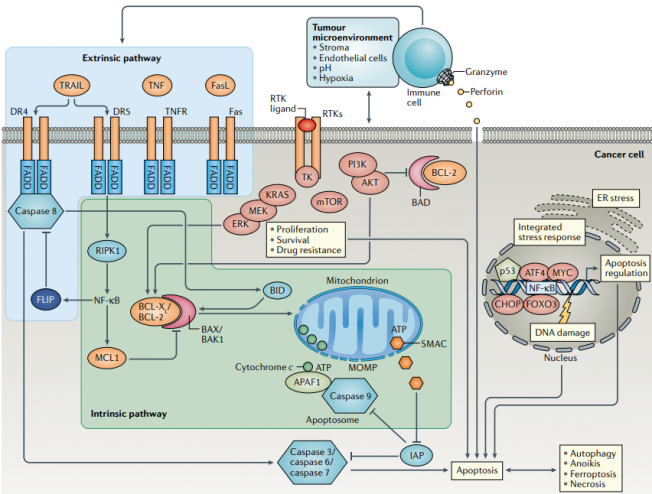
Logout
If you want to log out click in LogOut


Apoptosis pathway, also named programmed cell death, is a fundament process required for morphogenetic homeostasis during early development and in pathophysiological conditions (1).
The Apoptosis may be induced by a variety of agents, including low doses of radiation, hypoxia, heat, cytotoxic drugs or more specialized anti-cancer molecules (4).
You can custom your own SignArrays® with the genes of interest of your choice, according to your project, you just have to download and complete our Personalized SignArrays® information file and send it at contact@anygenes.com